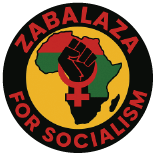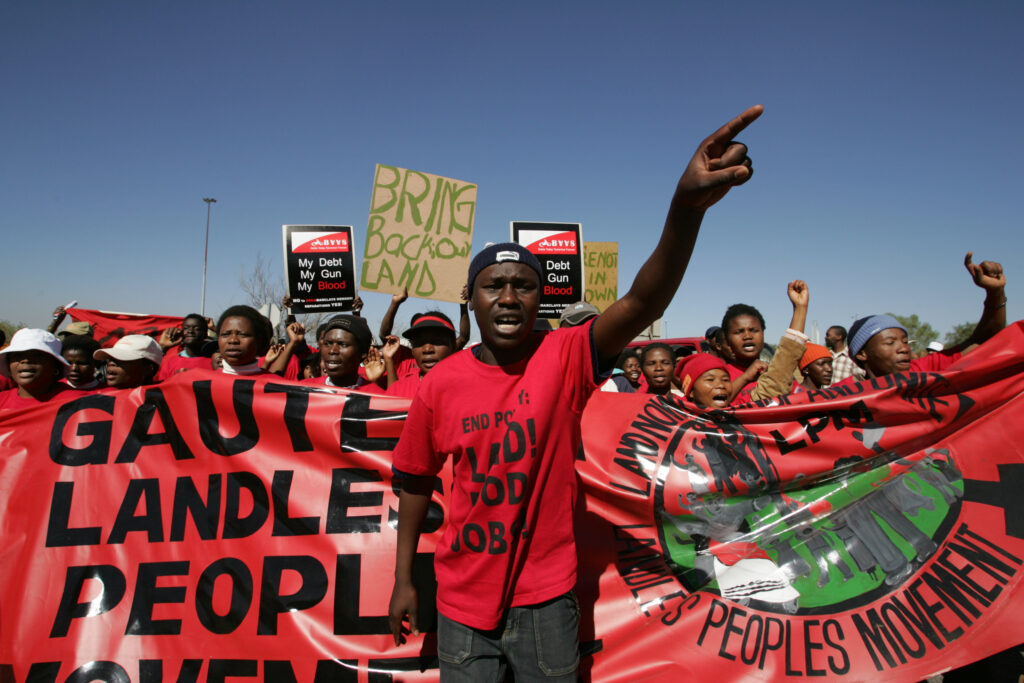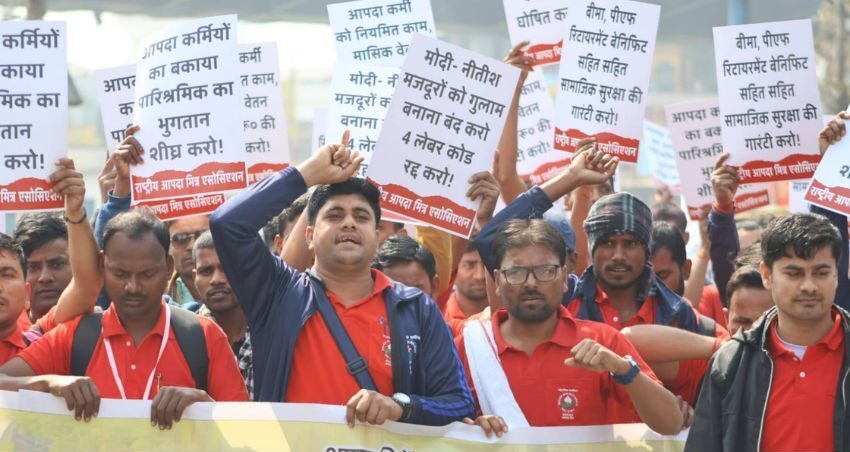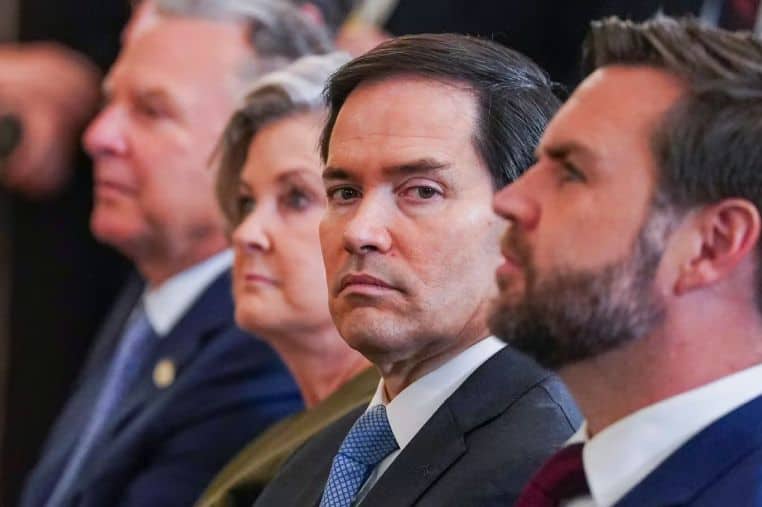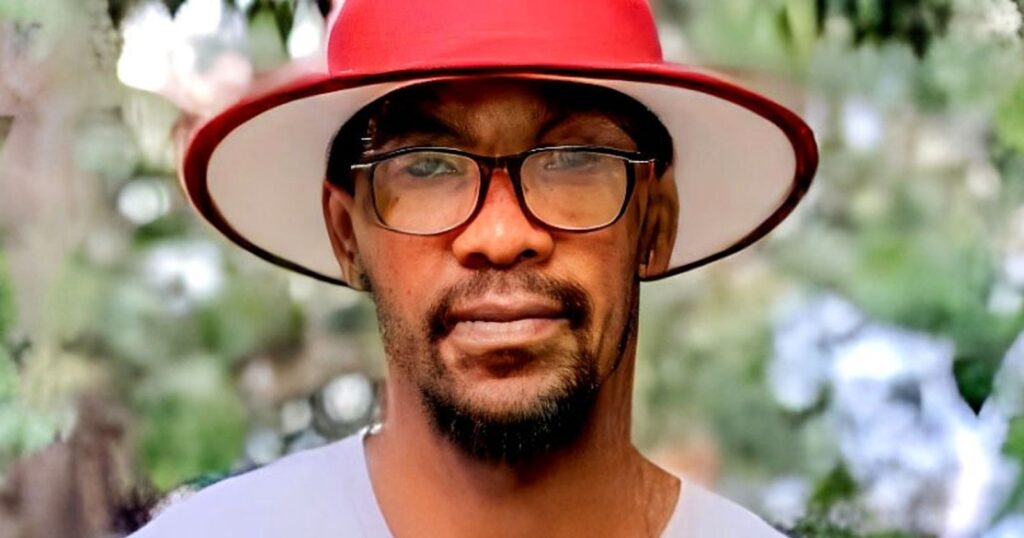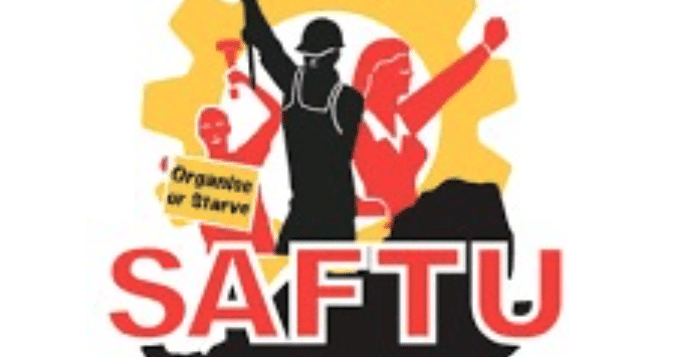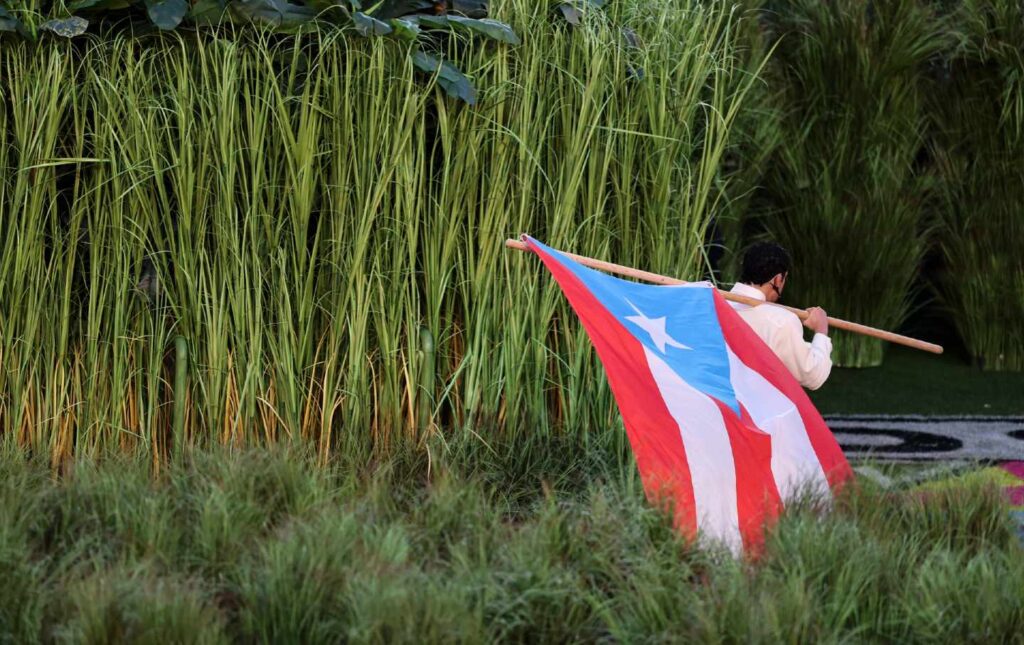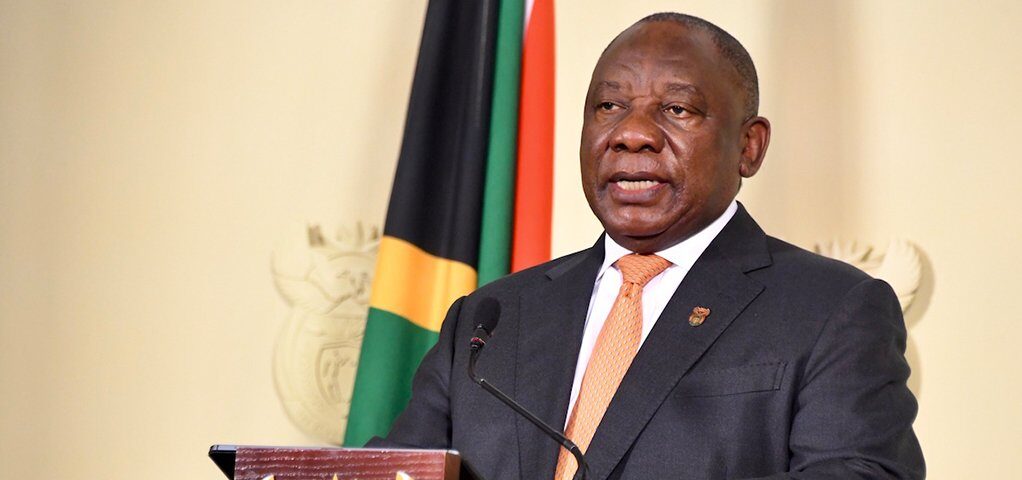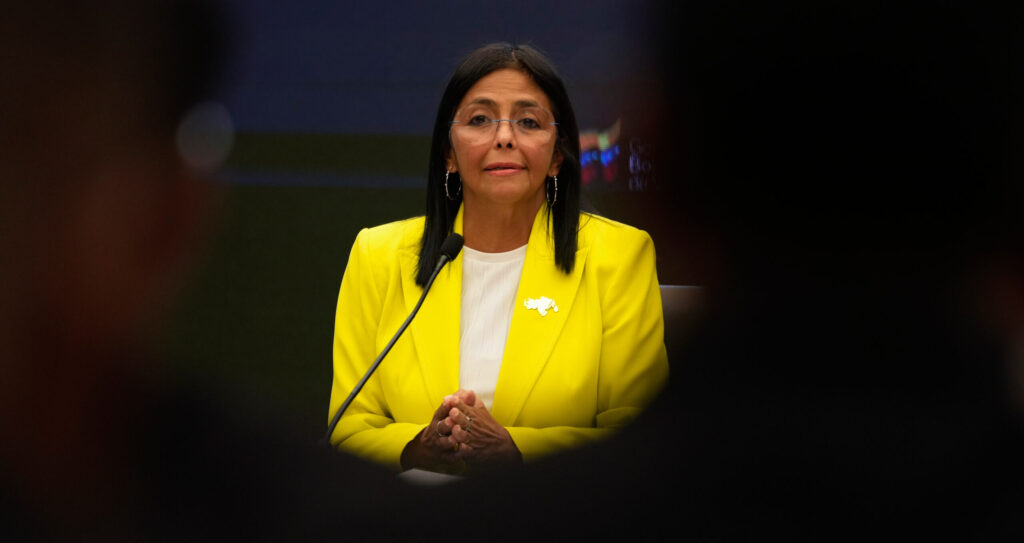The land question is a class Question. Thirty years after the end of apartheid, the land still has not returned to the people. The ANC government and the white capitalist class it protects have turned land reform into a cruel hoax — a theatre of broken promises and elite enrichment. The National Development Plan calls land reform a “moral, social, and economic imperative,” but this is nothing more than empty rhetoric from a political elite unwilling to challenge the foundations of white property ownership and capitalist accumulation.
Meanwhile, the dispossession of the Black working class continues every single day — not only in the townships and informal settlements, but in the farmlands where families are evicted by white landowners with the full protection of the state. The Rural Legal Centre in Robertson reports that farm evictions remain a weekly reality. This is the daily violence of class rule: a landless Black majority labouring under the thumb of an unbroken white agrarian bourgeoisie.
The Land is in the Hands of the Rich
Presently over 70% of farmland remains in white hands, despite white people being less than 8% of the population. Black South Africans, the overwhelming majority, own just 4% of the land. This is not a tragic accident. It is the result of deliberate policy choices made by a post-apartheid government unwilling to confront capital — foreign and domestic — or dismantle the racialised structure of land ownership.
The truth is this: South Africa’s capitalist class — both the white oligarchs who inherited the spoils of apartheid and the emerging Black elite enriched by BEE and land reform schemes aimed at building a layer of black commercial farmers have no interest in fundamentally transforming the countryside. Their interest lies in preserving the status quo, in which land continues to function as a source of wealth, profit, and speculation for a privileged few.
Land Reform Betrayed
In 1994, the Reconstruction and Development Programme promised to redistribute 30% of agricultural land within five years. That promise has been cynically abandoned. Today, just over 10% has been transferred — and much of that under conditions that benefit the capitalist class more than the dispossessed. The “willing buyer, willing seller” approach was always a farce, ensuring white landowners profited from inflated land prices while the poor were handed unviable plots with no support. In fact, rural communities that wanted to access land through the WBWS schemes had to form large collectives to afford the price asked by the “seller”. This mostly led to failure.
Even where land was redistributed, many so-called “beneficiaries” were politically connected elites. The masses of rural poor — especially farmworkers and women — were left out. And while some technocrats have tried to revive the programme through leasing schemes or tenure reforms, these efforts have been hobbled by corruption, mismanagement, and a deep unwillingness to challenge property relations.
Capital and the State
Let’s be clear: the crisis of land reform is not just about poor implementation. It is about class power. Land is wealth — and the ruling class will not give up its wealth voluntarily. That’s why land reform has never been properly funded. That’s why land reform is tucked away in the so-called “Social Cluster” instead of being placed at the heart of economic transformation. That’s why politicians talk endlessly of reform while the poor continue to be pushed off the land, their lives commodified by banks, agribusinesses, and mining corporations.
The white commercial farming lobby, the urban property developers, and multinational mining houses — all of them profit from land inequality. And the ANC has made it clear it will not confront these interests. In fact, it governs on their behalf.
What Kind of Land Reform?
We must reject the timid, technocratic approach that treats land reform as a bureaucratic process. Land reform is not about appeasing the World Bank or ensuring “investor confidence.” It is about breaking the back of settler-colonial capitalism. We need a radical redistribution of wealth — and land is central to this struggle. But redistributing land is also NOT enough. Poor rural people accessing land has to be supported financially, receive support to make farming units successful and enable household to be food secure and access the local markets. This takes time and “investment”. Millions of tax money was invested in white commercial farmers under Apartheid!!
Restitution must mean more than a slow-moving legal process. It must mean the return of land to communities without payment. Redistribution must go beyond leasing: land must be expropriated without compensation from large landowners and placed under democratic, communal control. Tenure reform must prioritise the rights of working-class communities — especially women — and defend them against the land grabs of capital.
The Expropriation Act offers one possible legal tool — but it is meaningless without a political movement from below to force the hand of the state. Legal frameworks do not redistribute power. Only mass struggle can do that.
Socialists and Land Reform
Land reform cannot be separated from the broader struggle for a socialist South Africa. It must be part of a comprehensive programme for the redistribution of wealth — a break with the neoliberal agenda of privatisation and austerity, and a move toward a planned economy rooted in meeting the needs of the people, not the profits of the few.
We need land for food sovereignty, land for housing, land for collective production and ecological repair. We need land in the hands of workers, women, peasants, and the unemployed — not corrupt officials, corporate investors, or comprador elites.
The unfinished business of land reform is the unfinished business of liberation. Until land is returned to the people — not in slogans, but in reality — there will be no justice, no freedom, and no peace.
Organise. Mobilise. Take back the land.
